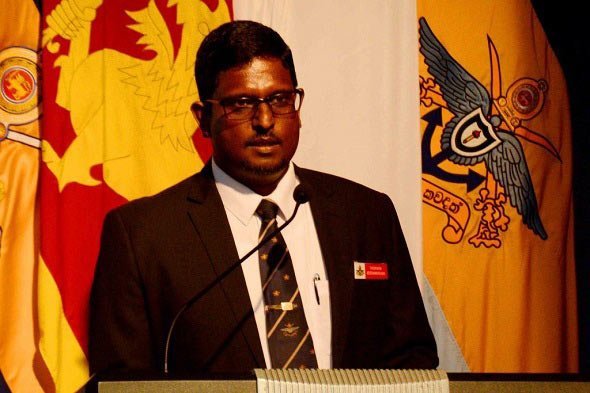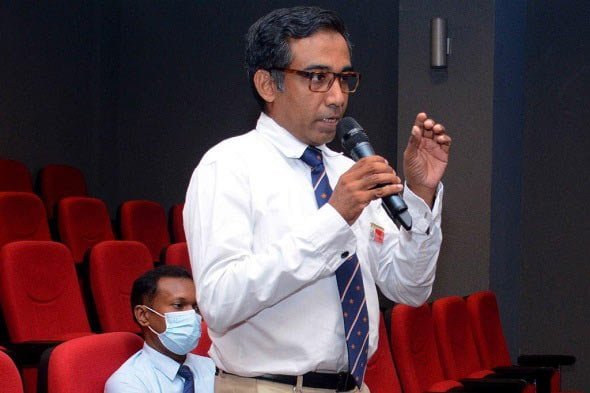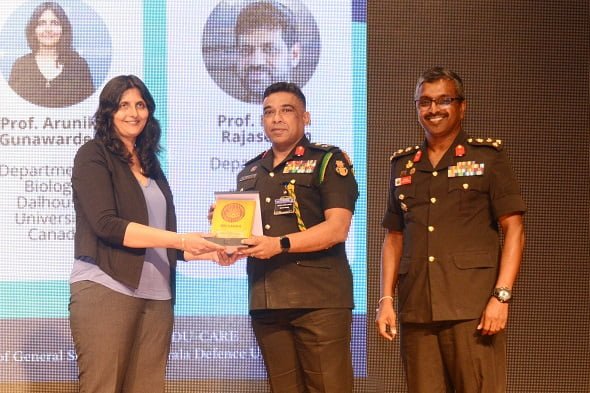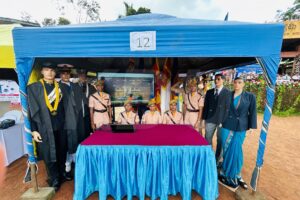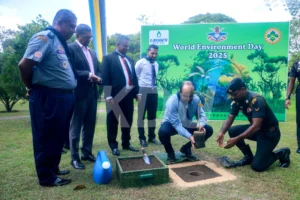Symposium organized by the Institute for Combinatorial Advanced Research & Education KDU-CARE, KDU, Ratmalana

‘’New biological approaches for the betterment of humanity and the environment’’
The Institute for Combinatorial Advanced Research and Education (KDU-CARE) which is the research arm of KDU, organized a symposium with the theme ‘’New biological approaches for the betterment of humanity and the environment’’ on the 19th of April at the Faculty of Graduate Studies, Auditorium. Major General Chandana Wickramasinghe RWP RSP ndu psc, Adjutant General of the Sri Lanka Army graced the occasion as the chief guest. Two eminent professors, Prof. Arunika Gunawardena and Prof. Rajesh Rajaselvam from Dalhousie University, Canada, were the resource persons for this symposium. They addressed novel ways where biology can be used to safeguard natural resources. Programmed cell death (PCD) is an active process that results in the death of individual cells, tissues, or whole organs. PCD has been studied extensively in animal cells, where it plays a significant role during development. Just as in animals, PCD plays an essential role also in plant development and defense, and occurs throughout a plant’s life cycle. However, at present very little is known about the cell death process in plants. The first seminar focused on PCD of plants where Prof. Arunika Gunawardena discussed ways in which one could develop novel models to study PCD in plants and its medicinal properties. Moreover, Prof. Gunawardena described on how Sri Lanka can protect threatened/endangered plant species.
The second seminar focused on the interaction between organisms of an ecosystem and the environment, which grows over time. Changes in ecosystems in tropical developing countries make substantial impacts on the aspects of the environment, health, and economy of the developed countries in the West. As such Prof. Rajesh Rajaselvam described that experiential learning in biodiversity broadens the focus on global issues by understanding real-world experiences to formulate ideal conservation strategies. Some of these strategies are rights of the indigenous people in practicing sustainable harvest, setting up protected areas, promoting environmentally friendly ecotourism, justifying various conservation measures for different places, encouraging volunteering in species-specific conservation programs, understanding the influence of local politics which impact conservation, and paying for ecosystem services. As such, the two professors emphasized that we should try our best to conserve our valuable natural resources with novel biological approaches for the future generations.
At the end of the two seminars, a very enthusiastic discussion was conducted on how KDU-CARE and KDU can collaborate with Dalhousie University, Canada, for future research collaborations. Brigadier Chinthaka Wickramasinghe USP USACGSC, Deputy Vice Chancellor (Defence and Administration), Prof. Sanath Dhammika, Deputy Vice Chancellor (Academic), Deans, Directors, academics, postgraduates, and undergraduates attended the symposium.
Previous post
‘Story of the World’ on Geopolitical Alliances presented to Vice Chancellor of General Sir John Kotelawala Defence University
Next post






